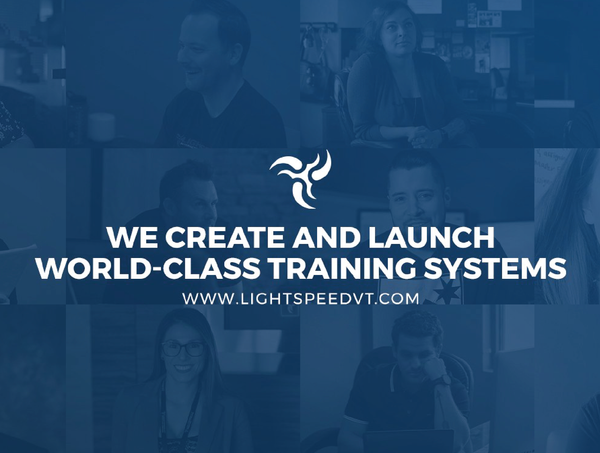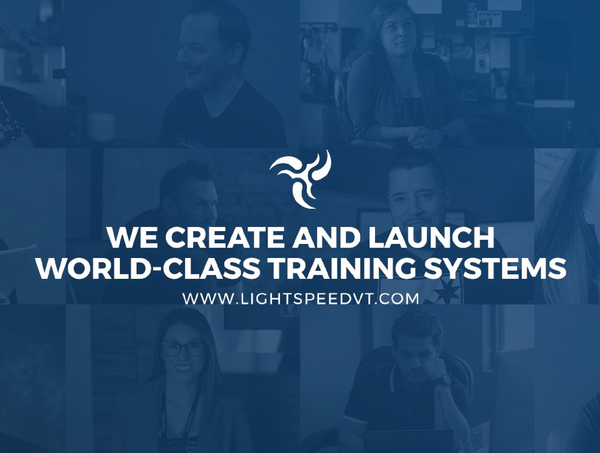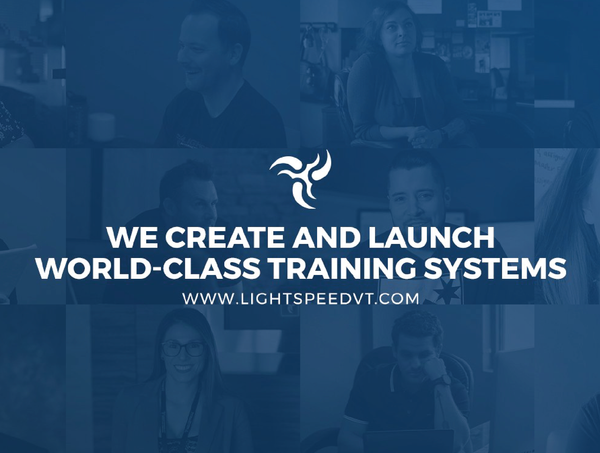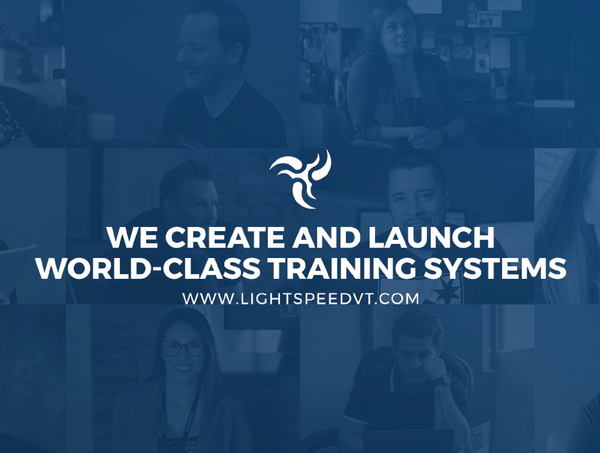Understanding LMS Systems: The Future of Integrated Learning Technologies

Learning Management Systems (LMS) have revolutionized the way we approach education and training in both academic and corporate settings. No longer confined to simple content delivery, LMS now serve as integrated learning networks that support a wide range of educational levels and styles. As we navigate through rapid technological advancements and competitive market changes, it becomes increasingly important to understand how LMS can be leveraged to foster collaborative learning communities, align with organizational goals, and prepare for a future where digital proficiency is paramount.
Key Takeaways
- LMS have evolved from basic content delivery platforms to sophisticated networks that support integrated learning across various educational tiers.
- Technological advancements such as big data analytics, VR/AR, and LXPs are enhancing personalized learning experiences within LMS.
- LMS are instrumental in building learning communities that encourage collaboration, engagement, and active participation.
- Strategic implementation of LMS in organizations aligns with business goals, promotes continuous learning, and serves as a future-proofing strategy.
- The future of integrated learning technologies lies in anticipating educational innovations and creating sustainable environments for individual and organizational growth.
The Evolution of Learning Management Systems
From Content Delivery to Integrated Learning Networks
Learning Management Systems (LMS) have evolved from simple content delivery platforms to sophisticated integrated learning networks. This transformation has been driven by the need to adapt to the rapid changes in technology and the competitive environment.
- The device independence of modern LMS designs allows learners to access educational content from any device, facilitating just-in-time training and ensuring that learning is continuous and uninterrupted.
- Offline content accessibility ensures that network issues do not hinder the learning process.
- The integration of various tools within a single LMS provides a seamless eLearning environment, enhancing the customizability and scalability of learning solutions.
The shift towards integrated learning networks signifies a move from isolated learning experiences to a more connected and collaborative approach. This not only benefits individual learners but also supports the collective growth of educational and corporate communities.
With the inclusion of technologies like big data analytics, personal learning platforms (LXP), and virtual/augmented reality (VR/AR), LMS systems are now at the forefront of creating comprehensive and adaptive learning experiences. These advancements have made it possible to tailor learning paths to individual needs, thereby maximizing the effectiveness of the LMS.
The Role of LMS in Modern Education and Corporate Training
Learning Management Systems (LMS) have revolutionized the way organizations approach training and development. In the corporate sector, LMS has become an indispensable tool for employee training and skills development. It facilitates a seamless integration of various learning resources, enabling employees to enhance their productivity and contribute more effectively to organizational goals.
The effectiveness of LMS in modern education is equally significant. It supports a diverse range of learning activities, from online courses to interactive workshops, catering to the varied learning styles of students. Here's how LMS is shaping the future of learning:
- Personalized learning experiences that cater to individual needs
- Scalable education solutions for institutions of all sizes
- Data-driven insights that inform teaching strategies and learner progress
LMS systems are not just about content delivery; they are about creating an integrated learning network that fosters collaboration and continuous improvement.
The integration of LMS in both sectors has led to the development of robust learning communities where knowledge sharing and collaboration are encouraged. This has been particularly beneficial in the corporate world, where the ability to quickly disseminate and apply new knowledge can provide a competitive edge.
Adapting to Rapid Technological and Competitive Changes
In the face of unprecedented technological advancements, Learning Management Systems (LMS) are pivotal in ensuring that organizations adapt effectively. These systems are no longer just repositories of content but have evolved into dynamic platforms that integrate with various technologies to provide a seamless learning experience.
- Big data analytics
- Personal Learning Platforms (LXP)
- Virtual and Augmented Reality (VR and AR)
These elements are not just buzzwords but are at the heart of transforming how we approach learning and development. The integration of such technologies into LMS is a testament to their growing contribution to the competitive edge of businesses.
Embracing digital transformation is not merely a trend but a necessity for businesses to stay relevant and competitive.
The digitization of products and services has accelerated, with customer interactions and virtual offerings advancing at a rapid pace. This shift signifies a fundamental change in business operations, where the strategic use of data and analytics is crucial for maintaining a competitive advantage in today's dynamic business landscape.
Technological Integration in LMS
Big Data Analytics and Personalized Learning Paths
The advent of big data analytics in Learning Management Systems (LMS) has been a game-changer for personalized education. By harnessing the power of data, LMS platforms can now offer personalized learning experiences that adapt to the unique needs and learning styles of each individual. This approach not only enhances the learning process but also ensures that learners are engaged with content that is most relevant to them.
The integration of big data analytics into LMS allows for the creation of tailored learning paths. These paths are dynamically adjusted based on real-time feedback and performance data, ensuring that each learner's journey is optimized for their success.
Furthermore, the ability to analyze vast amounts of data means that educators and trainers can detect areas that need improvement, making the learning experience more effective and efficient. For businesses, this translates into a more skilled workforce, capable of adapting to the ever-changing demands of the market.
- Tailored Learning Paths: Customized educational experiences for each learner.
- Monitoring Progress: Real-time insights into learner performance.
- Optimizing eLearning Delivery: Enhanced course content and delivery methods.
The Impact of Virtual and Augmented Reality on Learning
The advent of Virtual Reality (VR) and Augmented Reality (AR) technologies has revolutionized the Learning Management Systems (LMS), transforming them into dynamic platforms for immersive learning. These technologies enable learners to navigate virtual worlds and engage with scenarios that closely mimic real-life situations, enhancing the acquisition of practical skills.
- VR headsets alter visual perception, creating a fully immersive experience.
- AR overlays digital information onto the real world, enriching the learning context.
The synergy of VR and AR with LMS not only deepens understanding but also ensures compliance through realistic scenario modeling. This integration is particularly significant in higher education, where the depth of engagement can directly influence knowledge retention and skill proficiency.
The integration of VR and AR into LMS is not just about the novelty; it's about creating a learning environment that prepares students for the complexities of the modern workforce.
As these technologies become more intertwined with educational systems, they pave the way for a more interactive and lifelike learning experience. The role of AI in enhancing these experiences is also noteworthy, as it enables voice interactions and the conversion of traditional content into engaging 3D models or simulations.
Leveraging Learning Experience Platforms (LXP) Within LMS
Learning Experience Platforms (LXP) are transforming the way Learning Management Systems (LMS) operate, offering a more personalized and engaging learning journey. LXP serves as a dynamic hub, integrating various learning resources and tools to create a tailored experience for each user. This integration allows for a seamless transition between different learning modalities, catering to individual preferences and learning styles.
LXP features enhance the LMS ecosystem by providing:
- Interactive landing pages with e-commerce integration
- Full automation and SCORM support
- Zapier integration and leaderboards
- Training assignment and community engagement
- API/webhooks/SSO for streamlined connectivity
- Postables and notification center for updates
- File vault for resource management
- Live streaming capabilities
- Localization tools for global reach
By leveraging LXP within an LMS, organizations can foster a learning environment that is not only efficient but also highly adaptable to the evolving needs of learners. The synergy between LXP and LMS paves the way for a more cohesive and comprehensive learning network.
The strategic implementation of LXP within an LMS framework is essential for organizations aiming to stay ahead in today's competitive landscape. It ensures that learning and development initiatives are aligned with organizational goals, providing a robust platform for continuous growth and innovation.
Building Learning Communities Through LMS
Fostering Collaboration and Knowledge Sharing
In the realm of Learning Management Systems (LMS), the ability to foster collaboration and knowledge sharing is paramount. LMS platforms are increasingly equipped with social tools that encourage interaction among users. For instance, features such as discussion forums, messaging, and group projects enable learners to connect and exchange ideas, thereby enriching the learning experience.
- Discussion forums provide a space for learners to debate and reflect on course content.
- Messaging allows for direct communication, facilitating quicker problem-solving and idea sharing.
- Group projects simulate real-world collaboration, preparing learners for team-based work environments.
The integration of these collaborative tools within LMS platforms not only enhances the learning process but also that fosters individual growth as well as organizational progress. By leveraging these features, organizations can create a learning culture that is both dynamic and inclusive, leading to more effective knowledge dissemination and retention.
Motivating Engagement and Active Participation
To truly harness the power of Learning Management Systems (LMS), it's essential to motivate engagement and active participation among learners. This involves creating an environment that not only presents information but also encourages interaction and involvement. Customization plays a pivotal role in this, allowing the LMS to reflect the organization's brand style and cater to diverse learning needs.
By integrating features such as gamification, interactive content, and community-building tools, LMS can transform passive content consumption into a dynamic learning experience.
Effective LMS platforms offer a variety of tools to foster engagement:
- Interactive content that challenges and stimulates learners
- Gamification to introduce competitive elements and rewards
- Community features that enable peer-to-peer learning and support
- Training assignments that promote practical application of knowledge
Moreover, the integration of e-commerce can facilitate access to additional resources, while API integration ensures seamless operation with other systems. The cost of such comprehensive systems is often based on the number of users, with a typical pricing model starting at $3 per user and a monthly minimum that can be around $300.
The Corporate Advantage: Employee Training and Skills Development
In the corporate sphere, Learning Management Systems (LMS) have become pivotal in fostering employee growth and maintaining a competitive edge. The strategic use of LMS for employee training translates into measurable productivity gains and a solid return on investment.
Organizations are recognizing that the future of their business is tightly linked to the proficiency of their workforce. As such, the deployment of LMS is not merely an option but a critical necessity. This digital platform serves as an innovative substitute for traditional training methods, offering a dynamic system to keep pace with the evolving educational demands of a company.
To ensure the effectiveness of an LMS, it is essential to conduct thorough research to identify the specific educational needs of an organization. Factors to consider include the size of the workforce, the nature of the training required, and desired special features.
The table below illustrates the key benefits of implementing an LMS for corporate training:
| Benefit | Description |
|---|---|
| Enhanced Productivity | Employees acquire skills faster, leading to improved performance. |
| Cost Efficiency | Reduces the expenses associated with traditional training methods. |
| Scalability | Easily adjusts to the size and scope of the workforce. |
| Data-Driven Insights | Facilitates the assessment and optimization of training programs. |
By leveraging data-driven insights, businesses can refine their training modules and make agile decisions that align with market changes and customer expectations.
Strategic Implementation of LMS in Organizations
Aligning LMS with Organizational Goals and Insights
The strategic alignment of a Learning Management System (LMS) with an organization's goals is crucial for the success of both educational and corporate training initiatives. A well-integrated LMS serves as a catalyst for achieving business objectives and enhancing operational insights. It is not merely about the deployment of technology but about fostering a learning culture that aligns with the strategic direction of the organization.
The process of aligning an LMS with organizational goals involves a deep understanding of the company's vision and the role of learning in reaching those milestones. It is a collaborative effort that requires input from various stakeholders to ensure that the LMS supports the desired outcomes.
To effectively align an LMS with organizational goals, consider the following steps:
- Identify the core objectives of the organization and how the LMS can support them.
- Map out the learning pathways that correlate with business strategies and competencies required for success.
- Leverage analytics to monitor progress and adapt learning strategies as needed.
- Engage employees in the process to create a sense of ownership and relevance to their roles.
By taking these steps, organizations can create a symbiotic relationship between their LMS and their broader strategic plans, leading to a more cohesive and effective learning environment.
Ensuring Continuous Learning and Development
In the dynamic landscape of professional growth, ensuring continuous learning and development is pivotal. Learning Management Systems (LMS) are instrumental in facilitating an ongoing educational journey for both individuals and organizations. They offer a structured approach to learning that can adapt to the evolving needs of learners and the market.
- Customer Onboarding: New users are equipped with essential knowledge through introductory courses.
- Continuous Learning: LMS platforms are regularly updated with new courses to reflect software advancements and industry trends.
- Certification Opportunities: Users can validate their expertise and progress through certifications.
The flexibility of LMS allows for a seamless integration of various educational tools, ensuring that learning is cohesive and not fragmented. This adaptability is crucial for maintaining a competitive edge and fostering a culture of lifelong learning. The device independence of modern LMS designs ensures that training is accessible anytime, anywhere, making just-in-time training a reality.
The ultimate goal of an LMS is to create a learning ecosystem that supports the continuous professional development of its users. It's about creating a space where learning is as natural and integral as any other business process.
Investing in LMS as a Future-Proofing Strategy
Investing in a Learning Management System (LMS) transcends the mere acquisition of new software; it is a strategic commitment to the future resilience and adaptability of an organization. A well-chosen LMS becomes the backbone of a learning culture, promoting continuous development and aligning with the dynamic nature of business landscapes.
The true value of an LMS investment lies not only in its immediate functionality but also in its potential to grow and adapt alongside the company. It is a catalyst for creating a learning environment that nurtures individual and organizational advancement.
The following points highlight the strategic benefits of investing in an LMS:
- Ensuring that the workforce is equipped with the latest skills and knowledge.
- Facilitating the tracking and measurement of training effectiveness.
- Enabling scalability to accommodate organizational growth and changes.
- Providing a platform for consistent and accessible learning experiences.
By viewing an LMS as a long-term strategy, organizations can foster an atmosphere conducive to team development and increase the likelihood of achieving sustained success.
The Future of Integrated Learning Technologies
Anticipating the Next Wave of Educational Innovations
As we stand on the brink of a new educational era, the anticipation of the next wave of educational innovations is palpable. Educators and technologists alike are envisioning a future where learning is not just interactive, but truly immersive, leveraging the full potential of AI, VR, and AR technologies. These advancements promise to transform the educational landscape, making learning experiences more accessible, inclusive, and engaging for students of all backgrounds.
The integration of emerging technologies into learning management systems is not a distant dream but an imminent reality. The strategic implementation of these tools will be crucial in shaping the future of education.
The following list highlights key areas where we can expect significant innovations:
- Multimodality in learning, allowing students to engage with content in various ways.
- Enhanced accessibility through AI, supporting assistive technologies like closed captions and text-to-speech.
- Immersive experiences with AR and VR, taking educational experiences to new heights.
Investing in these technologies today will prepare educational institutions for the demands of tomorrow's digital workforce and create sustainable learning environments that foster continuous growth and development.
Preparing for the Demands of the Digital Workforce
As the digital landscape continues to evolve, organizations must prioritize the development of a skilled digital workforce. This involves not only equipping employees with the necessary tools but also ensuring that the learning management systems (LMS) they use are tailored to the dynamic needs of the digital age.
Before selecting an LMS, it's crucial to conduct a thorough needs assessment. Factors such as workforce size, desired skills, and specific functionalities like mobile compatibility or advanced data analysis should be considered. Scalability is also key, as the system must adapt to the company's growth and the ever-changing digital environment.
The future of your business hinges on the capabilities of your workforce. A robust LMS is not a luxury but a fundamental component in fostering a digitally proficient team.
Embracing digital transformation is not just about adopting new technologies; it's about a fundamental shift in how businesses operate. By leveraging data and analytics, companies can optimize operations and maintain a competitive edge. The right LMS can be a catalyst for this transformation, enabling continuous learning and adaptation.
Creating Sustainable Learning Environments for Growth
In the pursuit of creating sustainable learning environments, the integration of flexibility and engagement is paramount. LMS systems like Brightspace are at the forefront, enabling both synchronous and asynchronous learning modalities. This dual approach caters to a diverse range of learning styles and life circumstances, particularly benefiting those who juggle educational pursuits with other commitments.
The essence of a sustainable learning environment lies in its ability to adapt to the evolving needs of learners and the workforce. It fosters a culture of lifelong learning where individuals are motivated to continuously develop their skills.
To ensure growth within these environments, organizations must focus on expanding reach and accessibility. The goal is to build an inclusive educational ecosystem that supports learners from various backgrounds. The following points highlight the key aspects of this endeavor:
- Fostering a culture of lifelong learning.
- Navigating and overcoming technological challenges.
- Enhancing engagement through flexible learning options.
- Utilizing data-driven insights to tailor learning experiences.
Ultimately, the success of an LMS in fostering sustainable growth hinges on its ability to align with the organization's culture of learning. It should not only improve training procedures and financial outcomes but also significantly enhance employee performance and development.
As we stand on the brink of a technological revolution in education, the integration of advanced learning technologies is not just a possibility, it's a necessity. Embrace the future with our cutting-edge solutions that cater to the evolving needs of learners and educators alike. Don't get left behind—visit our website to explore our features, schedule a demo, and start your journey with the most innovative tools in the market. Your path to a smarter, more efficient learning experience is just a click away!
Frequently Asked Questions
What is a Learning Management System (LMS)?
A Learning Management System (LMS) is a software platform that facilitates the management, delivery, and measurement of an organization's corporate e-learning programs. It has evolved from a simple content delivery system to an integrated learning network that supports education at all levels.
How has LMS technology adapted to rapid changes in the competitive environment?
LMS technology has adapted by integrating current technologies such as big data analytics, personal learning platforms (LXP), and immersive technologies like virtual and augmented reality (VR/AR). These integrations contribute to creating a more dynamic and personalized learning experience.
What are the benefits of using LMS for building learning communities?
LMS facilitates the development of learning communities by enabling collaboration, knowledge sharing, and active engagement among learners. This approach fosters a supportive learning environment where individuals can learn from each other and stay motivated.
How does aligning LMS with organizational goals enhance learning?
Aligning LMS with organizational goals ensures that the learning and development strategies are directly contributing to the company's objectives. This strategic alignment helps in creating a training structure that evolves with the organization and enhances operational insights.
What is the significance of LMS in employee training and skills development?
LMS plays a crucial role in corporate settings by providing a systematic approach to employee training and skills development. It helps in tracking progress, certifying learning, and ensuring that employees' skills remain relevant and up-to-date with industry standards.
Why should organizations consider investing in LMS as a future-proofing strategy?
Investing in LMS is a future-proofing strategy because it allows organizations to create a sustainable learning environment that supports individual growth and overall organizational progress. A well-integrated LMS can adapt to future educational innovations and workforce demands.




